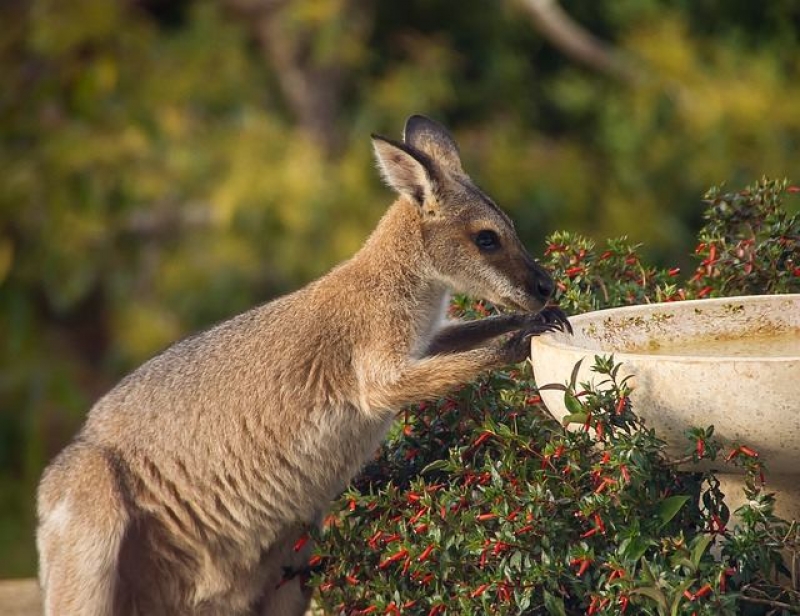Support for wildlife in the Summer heat
We may think that because many of our wildlife species are native to this country they have adapted to our climate conditions.
Adaptation however, may not be enough during a severe summer heat wave and wild creatures can suffer from heat stress too.
Providing water is an effective way of supporting these animals when it is hot and there are a number of ways of doing this. You can use your hose to mist your garden shrubs to cool the area and make it more comfortable for birds and possums.
This is best done in the morning or in the late afternoon so the heat of the sun doesn’t evaporate the water straight away. Leave water in various sized bowls for native animals to drink from. Smaller species such as lizards would prefer a shallow saucer; other species will drink from a deeper bowl. Place a rock or a stick inside it in case they fall in and need to climb out.
Water containers can be hung in trees for tree dwelling species. Terracotta is a good material to use for water containers because it doesn’t get too hot. Place the water containers in secure places such as under a bush to protect the animals from predators and keep your dogs and cats away from the area.
If you come across an animal affected by the heat, you’ll know there’s something wrong because their behaviour is unusual. For example, when a nocturnal species such as a possum is out and about during daylight hours it suggests they’re not well. Similarly, a tree dwelling koala sitting on the ground isn’t normal either. Birds, when too hot will breathe rapidly with their beaks open and they’ll hold their wings away from their body. In severe cases, animals will be unresponsive and may even have seizures.
It’s very stressful for wildlife to be handled by people but these animals need help. Use a towel to gently pick them up and place them in a dark cardboard box. Keep the box in a cool place and call us for advice.
If you do need to bring an animal in to us for examination and possibly treatment, please make a note of where you found them so they can be returned there once they have fully recovered.

